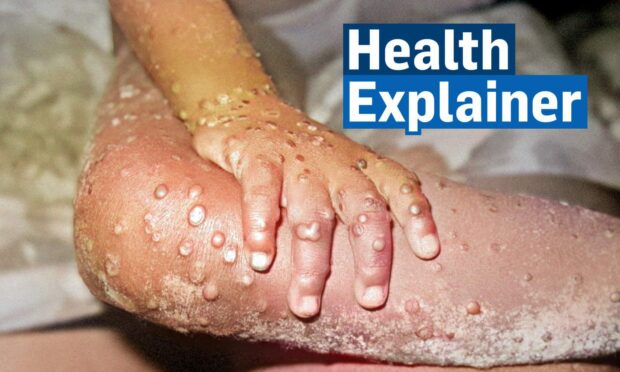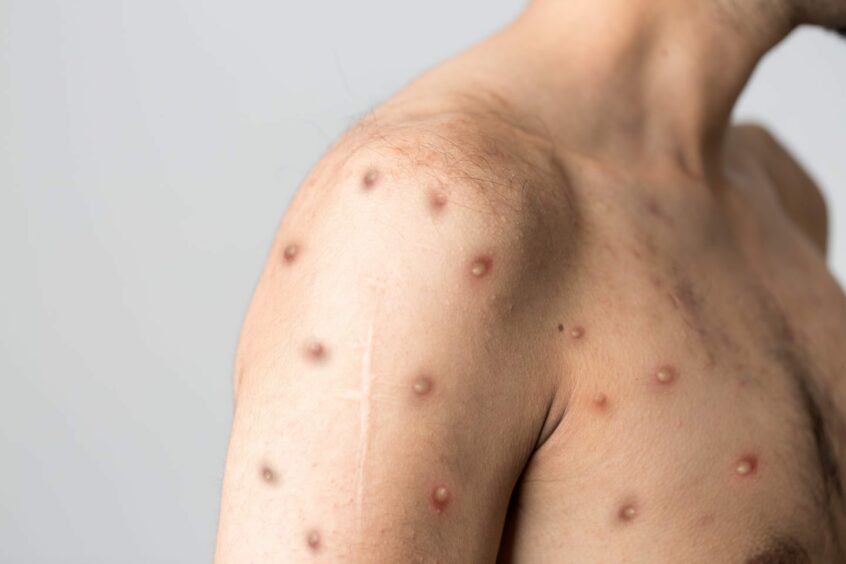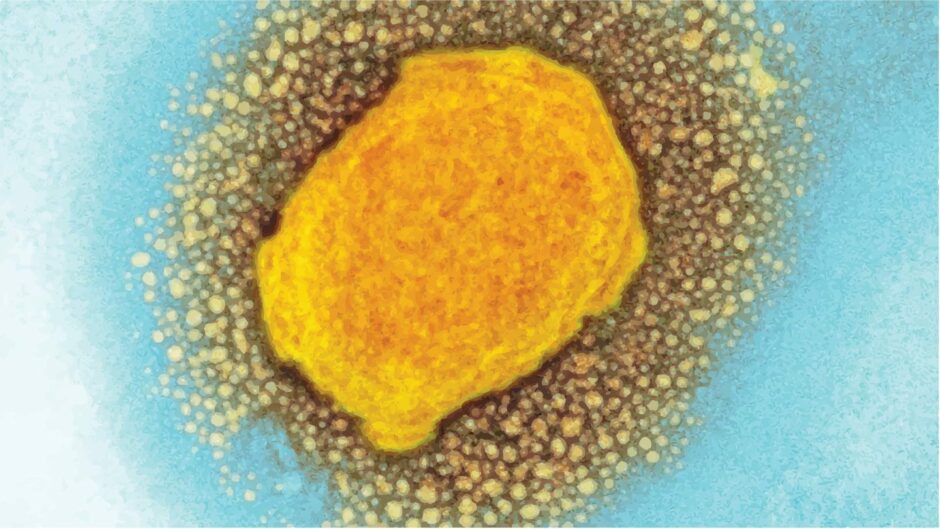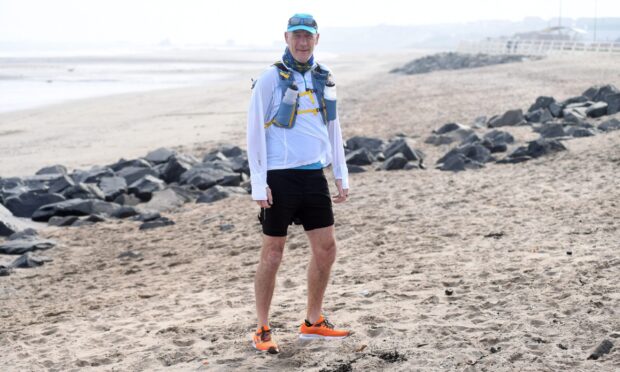Scotland has its first confirmed case of the monkeypox virus.
Public Health Scotland says there is now one confirmed case in the country.
The individual is receiving care and treatment appropriate to their condition and contact tracing is under way.
Last week 11 new cases of monkeypox were identified in the UK and as of May 20, that brought the total to 20 cases recorded.
But what is monkeypox, what are the symptoms and who is at risk?
Here’s what you need to know.
Monkeypox cases are usually found in West Africa, and the virus does not often spread elsewhere.
Globally, as of the end of last week, 127 cases had been reported in 16 countries.
Outbreaks have been reported in Britain, Portugal, Spain and the United States, prompting concern among public health experts.
The disease, which was first discovered in monkeys, is usually mild but can cause severe illness in some cases.
What are the symptoms?
Symptoms of monkeypox include:
- fever
- headache
- muscle aches
- backache
- swollen lymph nodes
- chills
- exhaustion.
A rash can develop, often beginning on the face, which then spreads to other parts of the body including the genitals.
The rash can look like chickenpox or syphilis, and scabs can form which then fall off.
The incubation period of monkeypox is usually from six to 13 days but can range from five to 21 days.
What has happened in the UK?
The cases in the UK are not all one cluster, with separate cases springing up that are unconnected.
The first case identified was in a person who had returned from Nigeria but other cases are unrelated to travel, suggesting there is community transmission.
Several cases have been confirmed in gay, bisexual and other men who have sex with men who have attended sexual health services.
Health Secretary Sajid Javid tweeted on Friday that 11 new cases of monkeypox had been confirmed in the UK, bringing the current total to 20.
And today, the first confirmed case in Scotland was announced by Public Health Scotland.
How is it transmitted?
Monkeypox is not normally a sexually-transmitted infection.
But it can be passed on by direct contact during sex.
It can also be spread through touching clothing, bedding or towels used by someone with the monkeypox rash.
And also through the coughs and sneezes of somebody with the infection.
What does Public Health Scotland say?
Dr Nick Phin, Director of Public Health Science and Medical Director, PHS explains:
“Public Health Scotland is aware of an individual in Scotland who is confirmed to have monkeypox.
“The affected individual is being managed and treated in line with nationally agreed protocols and guidance.
“We have well established and robust infection control procedures for dealing with such cases of infectious disease and these will be strictly followed.
“The overall risk to the general public is low.
“Anyone with an unusual blister-like rash or small number of blister-like sores on any part of their body, including their genital area, should avoid close contact with others and seek medical advice if they have any concerns.”
The UKHSA is carrying out contact tracing of people who have been in close contact with the affected.














Conversation